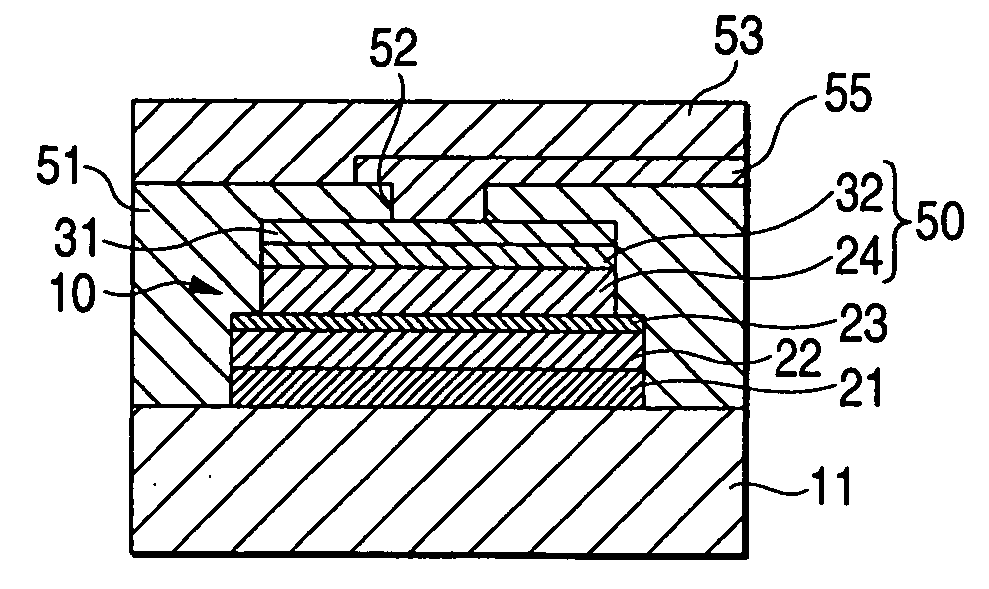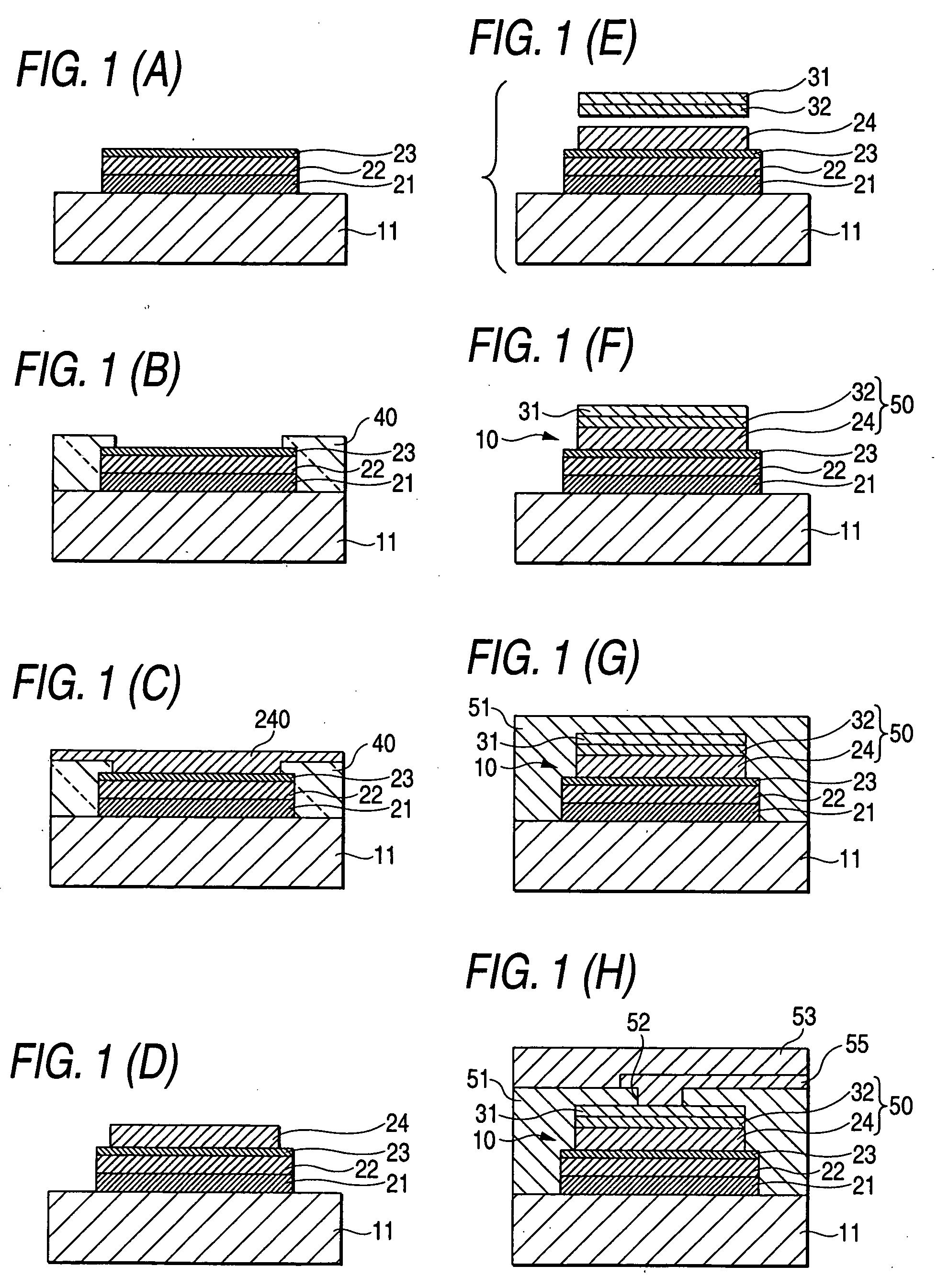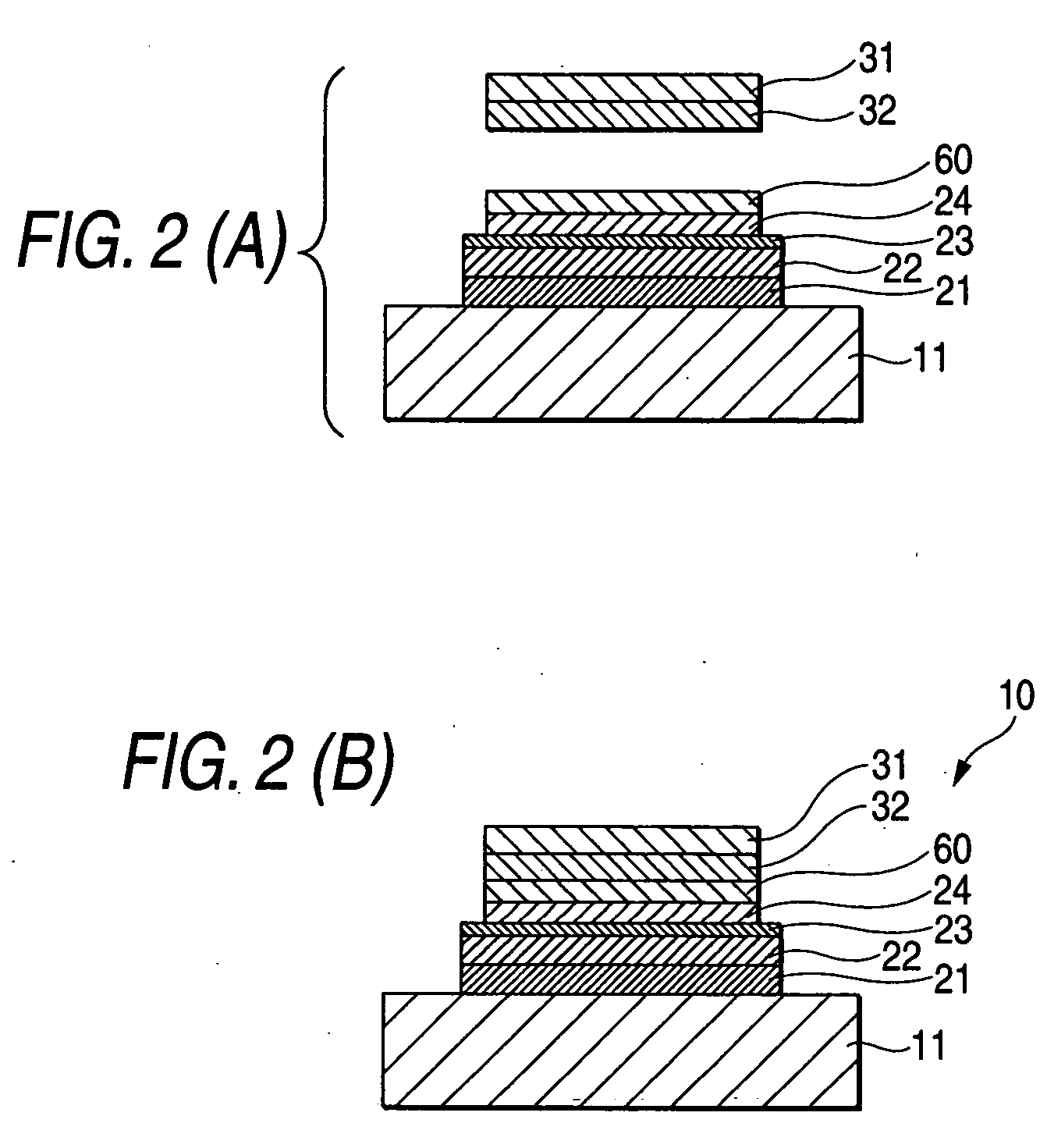Capacitor, circuit board with built-in capacitor and method of manufacturing the same
- Summary
- Abstract
- Description
- Claims
- Application Information
AI Technical Summary
Benefits of technology
Problems solved by technology
Method used
Image
Examples
first embodiment
[First Embodiment]
[0025] The structures of a capacitor and a circuit board with built-in capacitor according to a first embodiment of the invention will be described in detail with an explanation of methods of manufacturing them.
[0026]FIG. 1 is a sectional view showing steps in methods of manufacturing a capacitor and a circuit board with built-in capacitor to which the invention is applied. In the method of manufacturing a capacitor according to the embodiment, as shown in FIG. 1(A), a valve metal film 22 such as aluminum, tantalum, niobium, tungsten, vanadium, bismuth, titanium, zirconium, hafnium, their alloy or their compound (for example, niobium doped with oxygen) is formed on the surface of a first electrode 21 formed on a base material 11, and an anodic oxidation is then carried out to form a dielectric film 23 constituted by an anodic oxide film. In the embodiment, a tantalum film or a niobium film doped with oxygen is used as the valve metal film 22.
[0027] The base mater...
second embodiment
[Second Embodiment]
[0036]FIG. 2 is a sectional view showing steps in a method of manufacturing a capacitor according to a second embodiment of the invention.
[0037] In the embodiment, as shown in FIG. 2(A), a conductive adhesive agent 60 is provided between the surface of a first solid electrolytic layer 24 formed on a first electrode 21 and the surface of a second solid electrolytic layer 32 formed on a second electrode 31, where a heat press is carried out in this state so that bonding the first solid electrolytic layer 24 to the second solid electrolytic layer 32 can be made. By such a structure, the first solid electrolytic layer 24 and the second solid electrolytic layer 32 can be bonded firmly irrespective of the property of the solid electrolytic layer.
[0038] It is preferable that the conductive adhesive agent 60 should be a paste-like adhesive agent containing, as a conductive organic material, a conductive polymer such as polypyrrole or an organic semiconductor such as a T...
third embodiment
[Third Embodiment]
[0039]FIG. 3 is a sectional view showing steps in a method of manufacturing a capacitor according to a third embodiment of the invention.
[0040] While the polar capacitor has been manufactured in the first and second embodiments, it is also possible to manufacture a non-polar (non-polar type) capacitor 10 by forming a valve metal film 33 on the surface of a second electrode 31 and then carrying out an anodic oxidation to form a dielectric layer 34 constituted by an anodic oxide film, and thereafter, forming a second solid electrolytic layer 32 on the surface of the dielectric layer 34 as shown in FIG. 3(A), and subsequently, bonding the surface of a first solid electrolytic layer 24, which is formed on a first electrode 21, to the surface of the second solid electrolytic layer 32, which is formed on the second electrode 31, with a paste-like conductive adhesive agent 60 interposed in-between. As a conductive organic material, a conductive polymer such as polypyrrol...
PUM
| Property | Measurement | Unit |
|---|---|---|
| Dielectric polarization enthalpy | aaaaa | aaaaa |
| Electrical conductor | aaaaa | aaaaa |
Abstract
Description
Claims
Application Information
 Login to View More
Login to View More - R&D
- Intellectual Property
- Life Sciences
- Materials
- Tech Scout
- Unparalleled Data Quality
- Higher Quality Content
- 60% Fewer Hallucinations
Browse by: Latest US Patents, China's latest patents, Technical Efficacy Thesaurus, Application Domain, Technology Topic, Popular Technical Reports.
© 2025 PatSnap. All rights reserved.Legal|Privacy policy|Modern Slavery Act Transparency Statement|Sitemap|About US| Contact US: help@patsnap.com



